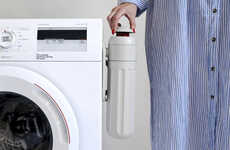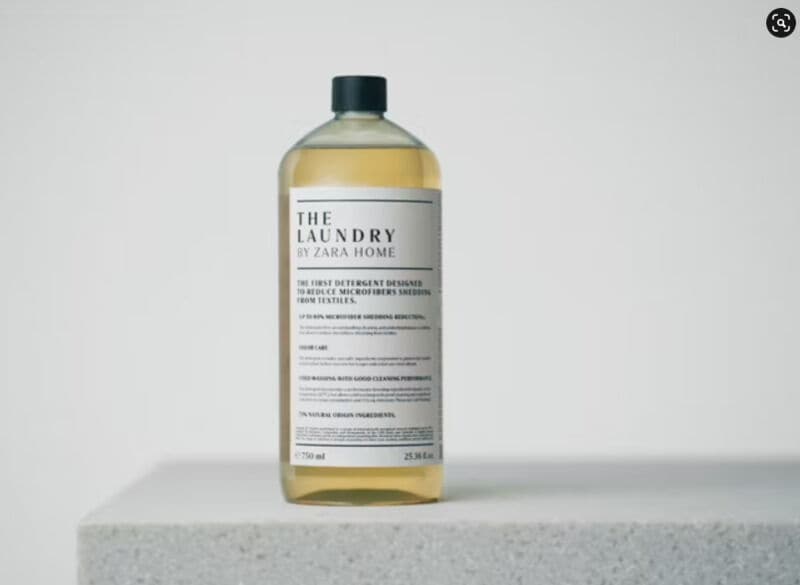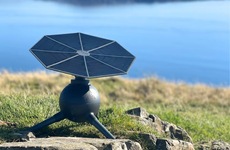
Zara's Detergent Challenges Microfiber Water Pollution
Laura McQuarrie — December 9, 2022 — Eco
References: fashionunited.uk
In partnership with chemical company BASF Home Care and I&I Solutions Europe, Zara launched an innovative new laundry detergent that's said to reduce textile microfibre shedding by up to 80%. At the same time this laundry product tackles the issue of microfiber water pollution, it also helps consumers lower their energy consumption by reducing washing temperatures to 20 degrees Celsius.
This cross-category collaboration from the retail giant is being introduced under the Zara Home label and it will be coming to both brand stores and online channels.
Beyond creating more sustainably designed fashion pieces, brands are releasing products and services that help to minimize their impact on the environment as a result of use.
This cross-category collaboration from the retail giant is being introduced under the Zara Home label and it will be coming to both brand stores and online channels.
Beyond creating more sustainably designed fashion pieces, brands are releasing products and services that help to minimize their impact on the environment as a result of use.
Trend Themes
1. Microfiber Reduction Laundry Detergents - The development of laundry detergents that can significantly reduce textile microfiber shedding and pollution provides an opportunity for innovation in the cleaning industry.
2. Energy Efficient Laundry Products - The growing demand for energy-efficient laundry products creates an opportunity for disruptive innovation in the household appliances industry, to improve sustainability and lower energy consumption.
3. Sustainability-focused Retail Partnerships - Cross-category collaborations between retailers and chemical companies to develop products that prioritize sustainability can be a disruptive innovation opportunity in the retail industry.
Industry Implications
1. Cleaning Products - Producers of cleaning products may explore the development of laundry detergents that reduce microfiber shedding, addressing growing concerns over microfiber pollution.
2. Home Appliances - Appliance manufacturers may explore the production of laundry machines designed to work with the new generation of microfiber reduction laundry detergents, specifically developed to work at low temperatures.
3. Fashion Retail - Fashion retailers may explore collaborations with chemical companies to develop sustainable laundry products, as consumers increasingly demand environmentally-conscious products from all sectors.
5.2
Score
Popularity
Activity
Freshness























